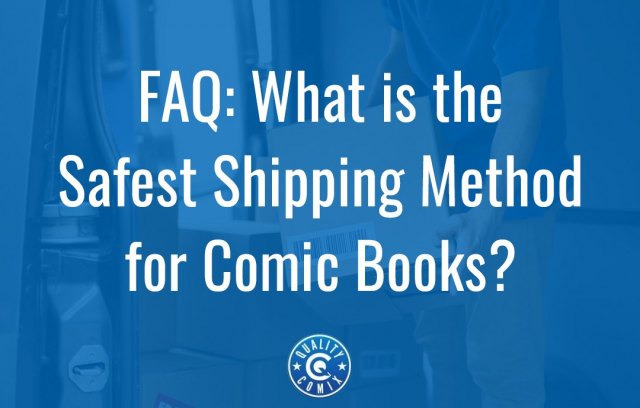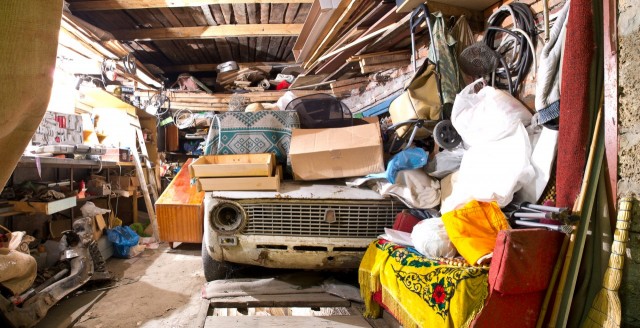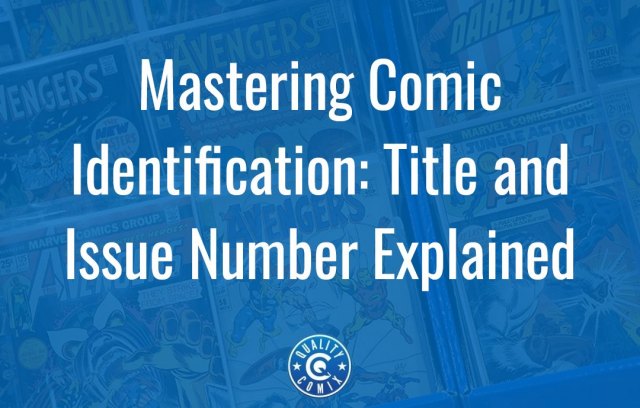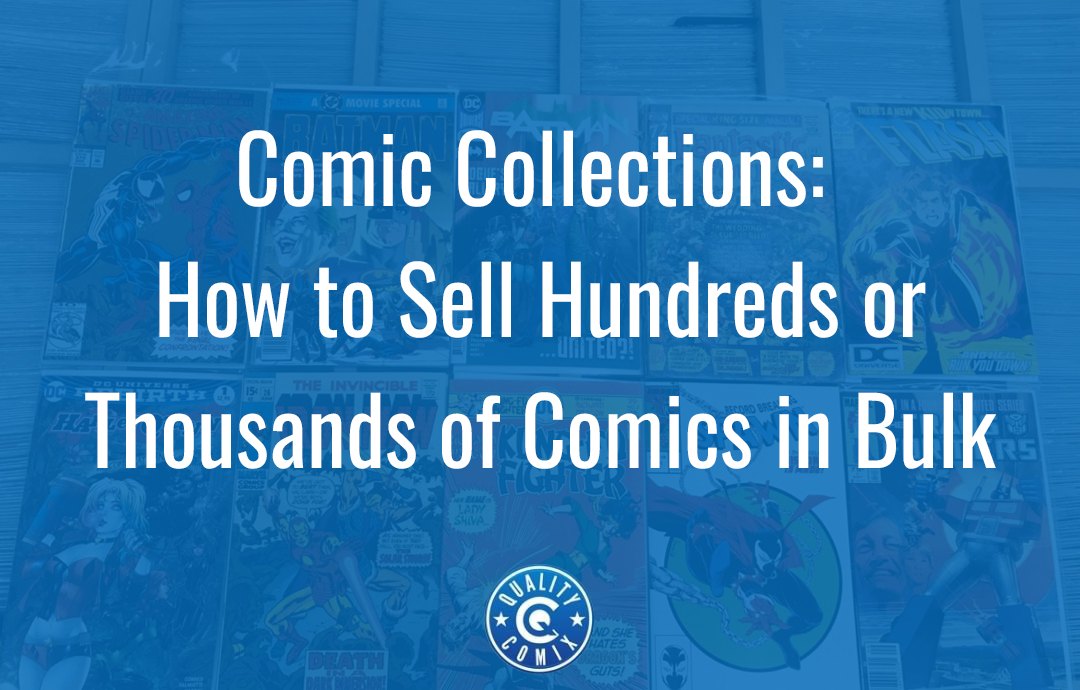
Comic collectors and long-time fans often amass collections over the years. Those collections can range from a few dozen or a few hundred comics all the way up to thousands, or even more, depending on how long they've collected, how many of the comics they keep, and how prolific of a buyer they were.
This can become a problem if, sometime down the line, you need to sell that collection. Maybe you're getting out of comics as a whole. Maybe you're shifting to a different hobby or a different passion and want to liquidate one collection to fund another. Maybe you're getting older and want to cash in an investment for spending money or living expenses. Or maybe you're an heir and inherited a collection from a relative, and now you need to decide what to do with it.
Whatever the case may be, the time has come to sell a large collection of hundreds or thousands of comics. What should you know, and how can you do it? Let's talk about it.
Table of Contents
Step 1: Know the Truth
There's a principle in business and throughout a variety of other industries known broadly as the 80/20 rule, or the Pareto Principle. In general terms, it states that 80% of your value comes from 20% of your effort/stock/collection. In comic collections, you can assume that 80% of the value of the collection comes from 20% of the books.
The thing is, with comics, the difference is often even more starkly apparent. Comics that aren't old and aren't key issues are often not worth much, and in many cases, are barely worth the paper they're printed on. An extension of that Pareto Principle for comics might be a 99/1 rule; 99% of the value of your collection is going to come from 1% of your comics.
That means if you have 1,000 comics you want to sell, maybe 10 of them are going to be worth any real money.
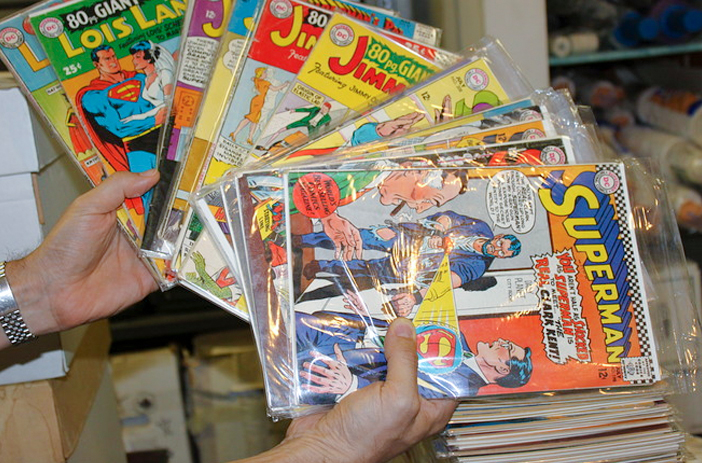
Image source: Google Images
Now, the corollary to this is that it depends on the kind of collection you have. Someone who subscribed to a dozen different series over the years and amassed tons of random, low-value comics is going to adhere pretty strictly to that principle. They might have a key or two out of sheer volume and luck of the draw, but it's largely going to be a "worthless" collection (with that word in scare quotes for a reason, which we'll get into later.)
On the other hand, a collector who collected for value and for an investment might have nothing but slabbed key issues, and that means pretty much every book in the collection is going to have value, even if it's only $100 or so.
For most people, the truth is that the majority of the comics you have aren't going to be worth all that much. It's still important to go through them and look for key issues and get the collection as a whole appraised, but you'll want to be aware of the reality that you likely aren't going to be rolling in dosh after you sell the collection to set new records.
Step 2: Decide: Bulk or Individual Sales
At this point, one thing you might want to do is make the key decision of whether you want to maximize your time or your money.
On the one hand, you can go through your comics individually, list them all one by one on your favorite auction site of choice, and keep trying to sell them until someone finally bites. It takes a long time, requires more effort on handling and shipping the comics, and can be a very drawn-out process, especially if you have a lot of dollar bin comics to sell. But, when all is said and done, you maximize your potential profits.
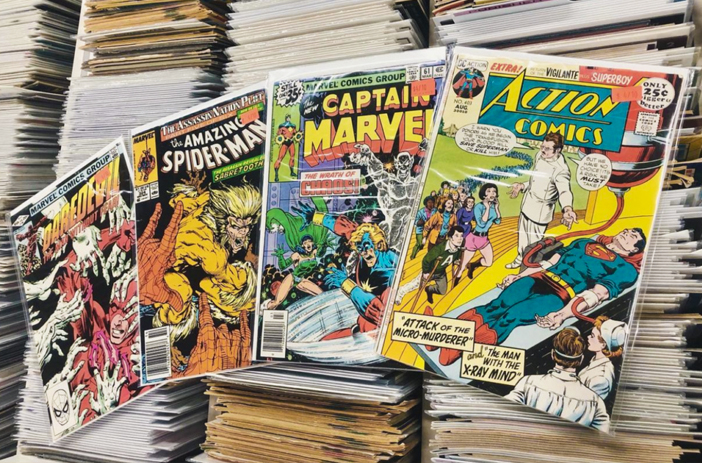
Image source: Google Images
On the other hand, you can sell the whole collection either as a few major lots or as one massive collection. There are a bunch of different ways to offload a full collection, whether it's to a broker, your LCS, or online, but the concept is the same across the board. You estimate a reasonable value for your comics, and you list the collection as a whole to solicit bids. You'll get offers anywhere from 40% to 70% of the total value of the comics (allowing for the person who buys it to take the time to sell for some profit of their own, as they are likely going to do), and you pick one to accept. You offload all of your comics in one quick and easy transaction for some fraction of their total actual value.
There's no one right answer here. We go into a lot greater detail on the subject here, so if you need help making this decision, check out that post.
Step 3: Appraise the Collection
Your next step is to go through your collection and see what you have. Here are some key details you can use to filter.
- Age. Generally, the older a comic is, the more valuable it is. Modern keys can be worth more than copper-age non-keys, of course, but in general, that's the kind of scale you're looking at. Browse through and look at dates to estimate the age range.
- Condition. Comics in good condition are more valuable than comics that aren't in good condition, just like with pretty much anything else out there. That's not to say that damaged comics are worthless, though! Some of the most valuable comics ever sold were mid-6/10 condition or lower, simply due to age. The nicer they look, though, the more valuable they'll be.
- Grading and Slabbing. A slab is a hard plastic shell that encapsulates a comic and is generally accompanied by a grade from one of the grading agencies like CGC. Slabbed comics are often worth more than unslabbed comics and are more protected, but slightly less desirable in some cases.
- Special attributes. Comics that are signed can (sometimes) have some additional value, though it's more valuable if the signature was verified. Comics with rare variants, comics that are whole (that is, posters and other pack-ins weren't removed), and so on can all be more valuable and sought-after. You can also look for things like misprints and oddities, as well as rarer variants, but it takes some knowledge of comics to even know what to look for there.
Appraising a collection can be a lot of work. There are some apps you can use to scan barcodes or even use optical recognition to identify comics by their covers. Others can build a spreadsheet and auto-populate information like recent eBay sales or just data about the comics (like issue number, run, author, etc.) to make it easier to have the collection as a whole appraised.
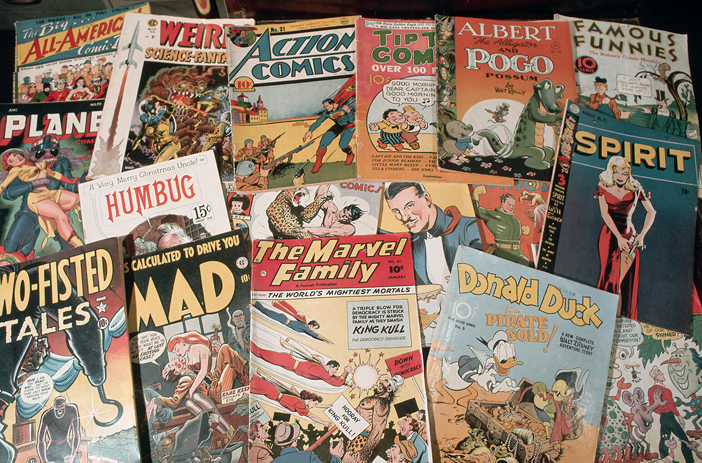
Image source: Google Images
Perhaps the easiest way to get a ballpark estimate and appraisal of your collection is to talk to comic buyers like us. You can click here to drop us a line with a description and a few photos of your collection, and we'll be able to give you an idea of what you might have, what it can be worth, and what you might consider doing with it. We can advise you on your next steps and even make you an offer if you like, but there's no pressure or obligation to sell to us. We just love talking about comics.
Step 4: Decide How to Sell
Above, we already mentioned about deciding between selling individually and selling in bulk. That said, selling in bulk still has a few variations you might consider, so we'll go over three possible options.
Option 1: The Whole Thing at Once
The first option is to appraise the full collection, get a ballpark offer for what you'd want to get out of it, and sell it all in one go. You can sell to collectors, resellers, comic stores, enthusiasts, or just to some random person online. It's quick, it's simple, and it's easy. The hardest part is shipping if we're being real here; large comic collections can be both bulky and heavy, and that means expensive to ship. Combined with signature confirmation and insurance, you have a decent expense ahead of you.
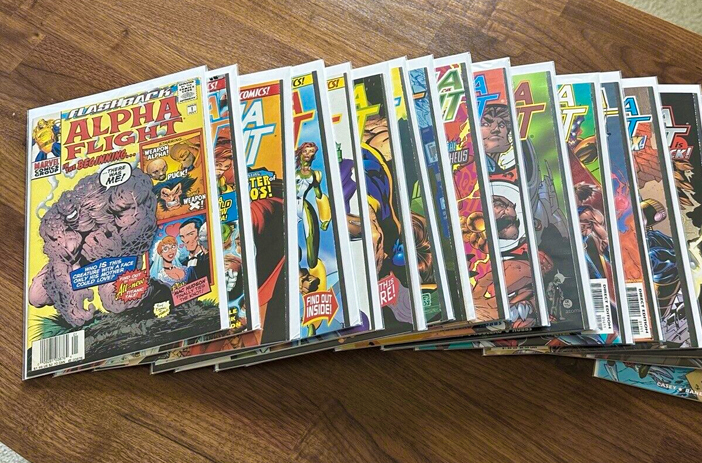
Image source: Google Images
Of course, if you sell locally, you offload a lot of the danger of working with the postal system. You can sell to a local comic store, a local collector, or even at a convention you bring your collection to when you visit. They're all viable options if you want to offload a decent collection, though, of course, the offer you get will vary.
Option 2: Selling the Bulk, Saving the Value
The second option, and the one we generally recommend, is to go through your collection and identify the comics that contain that 1% of the value. Set a threshold; anything over that threshold set aside to sell individually, and anything under it keep in the bulk bin and sell as a lot. The threshold can be $5, or $10, or even more if you like, but the goal is to get your money's worth out of the good comics while you offload the bulk to someone who will do the legwork to get the extra dollars from it.

Image source: Google Images
Of course, this still means you need to do the work of identifying the valuable comics and selling them individually. Unless, of course, you have a resource you can trust to identify and give you fair value for the valuable comics. Not to toot our own horns too much, but you can always see what we have to say…
Option 3: Themed Collections and Complete Runs
A third option – which you can do with the whole bulk collection or just the bulk you have left after you've picked out the value using option two above – is to create themed sets and runs of comics to sell.
Some random selection of 50 comics probably isn't going to be very interesting to the vast majority of collectors out there. The people most likely to be interested in it are children or the parents of children who just want a starter batch of comics to read, and resellers who will buy your $1 comics at $0.50 each and resell them for full price as much as they can.
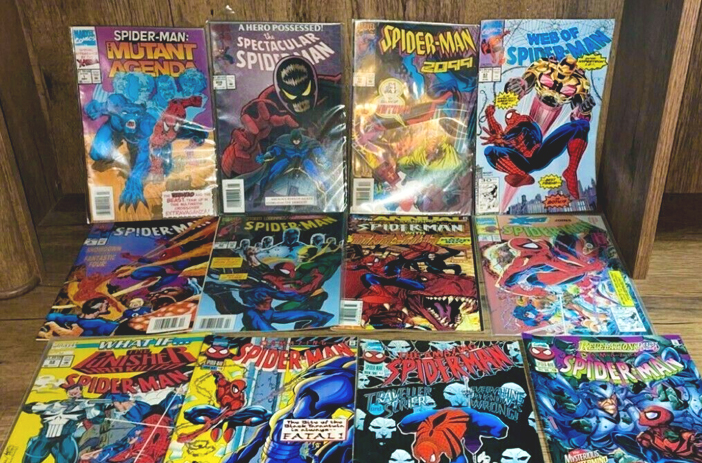
Image source: Google Images
But, a selection of 50 sequential Spider-Man comics from 1987, or the complete run of an X-Men story, or a set of all of the various "first" appearances of Deadpool in different comics? That's another story. You appeal to people who want to own a whole storyline but don't want to buy a trade paperback (or no such trade exists). You appeal to collectors of various characters or lines. You even appeal to nostalgia. You can get more than the comics might be worth individually by having a full set to sell.
This does require you to actually have that set, though, and that can be a tall order sometimes, especially if you're missing a key or the key is one of your valuable comics you'd want to sell individually. From there, you have to make a choice about how you want to put a set together to sell.
Step 5: Create Listings or Solicit Offers
Once you've done everything above, it's time to actually sell the comics. List your collection on the venue of your choice, and solicit offers. Talk to your local comic shop, talk to resellers and brokers, list the collection on eBay; whatever you choose, pull the trigger to get the process started.

Image source: Google Images
At this point, you're just left with one thing: waiting for an acceptable offer to come in and making the sale. Someone, somewhere, will probably be interested in your collection. Meanwhile, you might have to fend off lowballs or scams, but that's part of any online sales, not just comics. That's why it's so important to know what you have and how to sell it, after all.
And, of course, if you want any help with any step of this process, you can reach out and contact us. We're more than happy to chat about comics, no matter what you have, and we'll help answer any questions you may have about selling off your collection.

